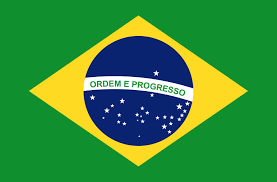Chemycal has been acquired by 3E
Learn MoreChemycal has been acquired by 3E
Learn MoreDiscover how Chemycal PRO helps you boosting your regulatory monitoring:

Brazil has taken another step to create legislation to control dangerous substances in electronic equipment. The working group (WG) set up by the federal government to propose draft law met for the first time all day on Monday in Brasilia. The participants, especially the productive sector, were willing to contribute to the definition of the standard, already called " Brazilian RoHs ".
RoHS (Restriction of Certain Dangerous Substances in Portuguese) is a set of legal rules adopted since 2003 by the European Union (EU) that prohibits the use of certain hazardous substances in the manufacture of electrical and electronic products, such as televisions, computers, x-ray machines, among others.
The restriction reaches the substances cadmium (Cd), mercury (Hg), hexavalent chromium (Cr (VI)), polybrominated biphenyls (PBBs), diphenyl-polybrominated ethers (PBDEs) and lead (Pb). Contained in the composition of consumer electronics, these substances can contaminate people through exposure and contact with skin and inhalation, and the environment (soil and groundwater) through improper disposal.
Coordinated by the Ministry of the Environment (MMA), the WG has a seven-month deadline to approve the Brazilian RoHs proposal. To this end, various sectors interested in the subject are involved, including federal government bodies, regulatory institutions and representatives of industry and commerce (manufacturers and importers). The idea of the final text of the draft is ready by the end of the year.
During the meeting, MMA managers gave a presentation on the Brazilian RoHS building process, the actions that the government has been taking on the subject and the creation of the WG and its attributions. Then, they presented data from the questionnaire applied, months ago, to manufacturers and importers of electronics to know the reality of the sector.
CONTINUE READING ON www.ministeriodomeioambiente.gov.br
2013 © MyChemicalMonitoring. ALL Rights Reserved. About Us | Terms and Conditions